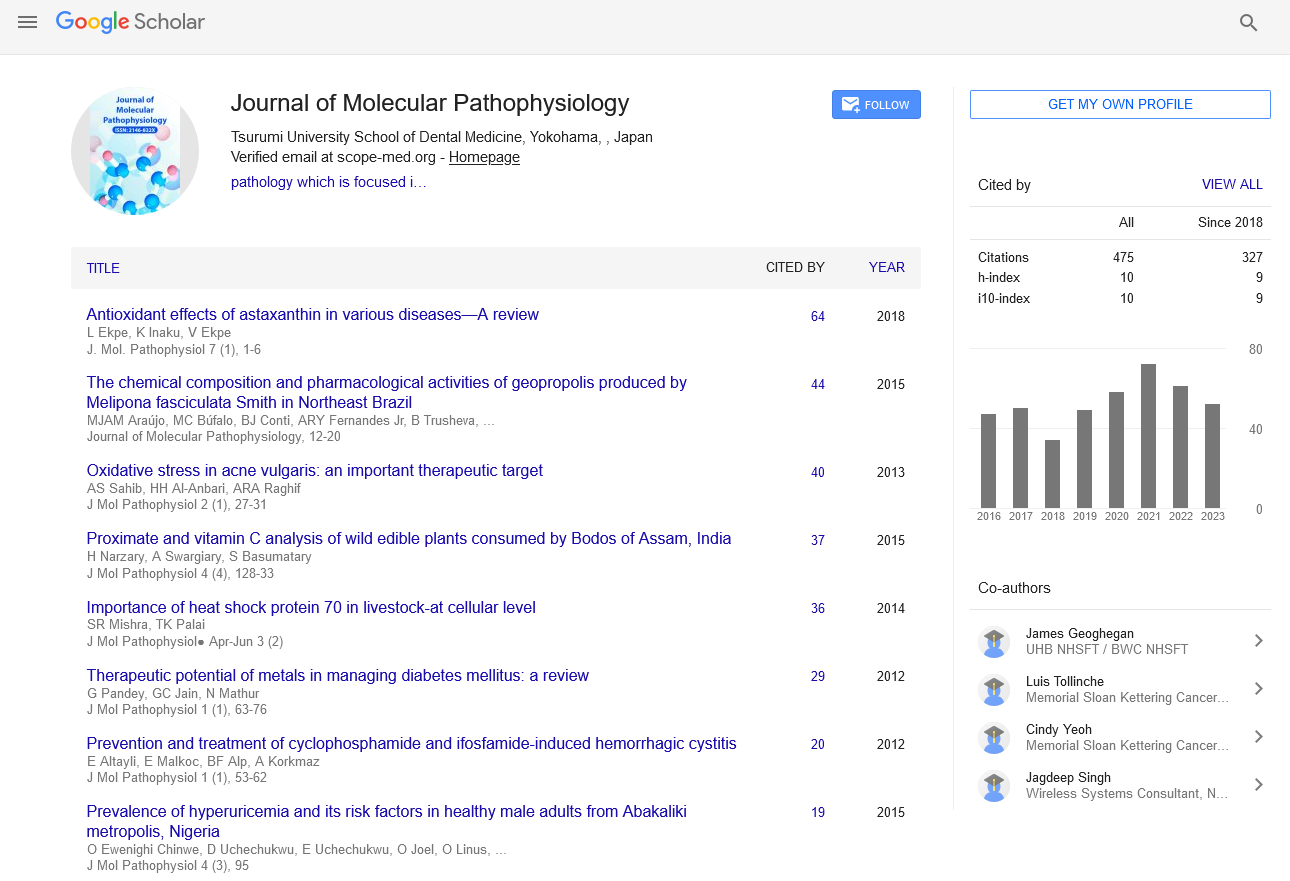A study on dichlorvos induced hematology, clinical biochemistry and reproductive abnormalities in male albino rats
Abstract
Onyinyechukwu Ada Agina, Valentine Uneojo Omoja, Samuel Okezie Ekere, Samuel Odo, Benson Chukwunonso Agina
Aim/Background: Dichlorvos (Otapiapia®) is a locally formulated unspecified insecticide applied indiscriminately as a household repellant. It is used as an acaricide, rodenticide, and botacide. This study evaluated the effect of oral administration of this dichlorvos on the hematology, serum biochemistry, and cauda epididymal sperm reserve (CESR) of male albino rats. Materials and Methods: A total of 40 male albino rats were randomly assigned into four groups designated A, B, C and D in galvanized cages. Groups A, B, and C were dosed orally using orogastric cannula with 4, 2, and 1 mg/kg of Otapiapia®, respectively, daily for 28 days while Group D received 10 ml/kg distilled water, and served as the control. All hematological, serum biochemistry, and CESR analyses were done following standard procedures. Results: Significant (P < 0.05) differences were recorded in all the hematological and serum biochemistry parameters and CESR except in the serum alkaline phosphatase and creatinine values. Conclusion: Oral administration of dichlorvos (Otapiapia®) as used in this study led to anemia, severe leukocytosis, hyperproteinemia, hyperglobulinemia, hypocholesterolemia, hyperglycemia, and decreased epididymal sperm reserve.
PDF






